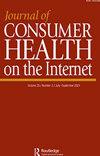权威的在线COVID-19消费者健康信息能被普通公众的成年人理解吗?: COVID-19信息分析
IF 0.7
Q4 PUBLIC, ENVIRONMENTAL & OCCUPATIONAL HEALTH
引用次数: 0
摘要
摘要目的调查美国疾病控制与预防中心(CDC)和世界卫生组织(WHO)提供的权威新冠肺炎消费者健康信息是否处于低可读性水平(即处于或低于六级阅读水平)。这些主要公共卫生组织在疫情期间迅速在互联网上发布了权威的新冠肺炎健康信息。然而,很少有研究评估这两个主要公共卫生组织传播的信息是否能让成年人从公众中获得。本研究调查了美国疾病控制与预防中心和世界卫生组织分发的新冠肺炎英文健康信息的Flesch-K等级水平。设计本研究以传播学和信息科学框架为指导。它检查了资源的阅读水平,看看它们是否符合美国医学协会关于患者教育材料的指导方针。方法/设置所使用的方法以内容和文档分析为中心。分析的样本是通过访问美国20个最大城市公共图书馆系统网站上共享的新冠肺炎健康信息来识别的。关键结果显示,研究中审查的文件与美国医学会推荐的患者教育材料的六级阅读水平不兼容。本文章由计算机程序翻译,如有差异,请以英文原文为准。
Is the Authoritative Online COVID-19 Consumer Health Information Intelligible to Adults of the General Public?: A COVID-19 Information Analysis
Abstract Objective To investigate whether the authoritative COVID-19 consumer health information provided by the Centers for Disease Control and Prevention (CDC) in the United States (U.S.) and the World Health Organization (WHO) is at low readability levels (i.e., at or below a sixth-grade reading level). Major public health organizations, such as these have quickly distributed authoritative COVID-19 health information on the Internet during the pandemic. However, scant research has assessed whether the information disseminated by these two major public health organizations enables access by adults from the general public. This study examines the Flesch-Kincaid grade levels of the COVID-19 health information in English distributed by the CDC and the WHO. Design The study is guided by communication and information science frameworks. It examines the reading level of the resources to see if they are compatible with the guidelines of the American Medical Association for patient education materials. Methods/setting The methodology used centered on content and document analyses. The samples analyzed were identified through accessing the COVID-19 health information shared on the websites of the public library systems of the twenty largest cities in the U.S. Key results The results show that the documents reviewed in the study are not compatible with the sixth-grade reading level recommended by the American Medical Association for patient education materials.
求助全文
通过发布文献求助,成功后即可免费获取论文全文。
去求助
来源期刊

Journal of Consumer Health on the Internet
PUBLIC, ENVIRONMENTAL & OCCUPATIONAL HEALTH-
CiteScore
1.30
自引率
12.50%
发文量
32
期刊介绍:
The Journal of Consumer Health on the Internet is the only professional peer-reviewed journal devoted to locating consumer health information via the Internet. In this journal librarians and health information providers describe programs and services aimed at helping patients and the general public find the health information they need. From the Editor: "Studies have shown that health information is one of the major reasons that people worldwide access the Internet. As the amount of health information on the Web increases exponentially, it becomes critical that librarians-including public and medical librarians-be knowledgeable about what is available online and be able to direct users to reliable, accurate, quality information."
 求助内容:
求助内容: 应助结果提醒方式:
应助结果提醒方式:


